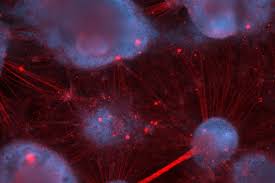Source: siliconrepublic.com
New research has uncovered a key cause of pelvic pain experienced by people with endometriosis, which could potentially open up new avenues for pain relief for the condition.
The Greaves Lab, which is part of Warwick Medical School at the University of Warwick, collaborated with University of Edinburgh to look into how cells in our immune system – macrophages in particular – play a role in stimulating the growth and activity of nerve cells. This leads to increased sensitivity to pain in the pelvic region.
Macrophages, a type of white blood cell, adapt their functions according to local signals and so can be modified by disease. They are drawn more to lesions cause by endometriosis and can be found inside the lesions themselves.
The study, published in the FASEB Journal and supported by funding from the Medical Research Council, found that macrophage depletion in a mouse model of endometriosis can reverse abnormal changes in pain behaviour.
According to the University of Warwick, around 176m people worldwide are living with endometriosis. The condition causes cells similar to those in the internal lining of the uterus, the endometrium, to grow outside of it in the form of lesions, typically in the pelvic category. This causes significant pain and can even be associated with infertility. As it stands, treatment options are limited to surgical removal of lesions or medical management to suppress ovarian hormone production.
Lead author Dr Erin Greaves from Warwick Medical School said: “Endometriosis is sometimes considered a ‘hidden disorder’ because of a reluctance to discuss what can be passed off as ‘women’s problems’.
“Hormonal solutions rely on suppressing ovarian function but are not ideal as they can cause unwanted side effects, and prevent the user from becoming pregnant. We are trying to find non-hormonal solutions.
“If we can learn about the role of macrophages in endometriosis then we can distinguish them from healthy macrophages and target treatment to them. Macrophages are so crucial to our immune system tissue function and we need to know more about their roles, so this research goes some way in defining how macrophages are different in endometriosis.”
